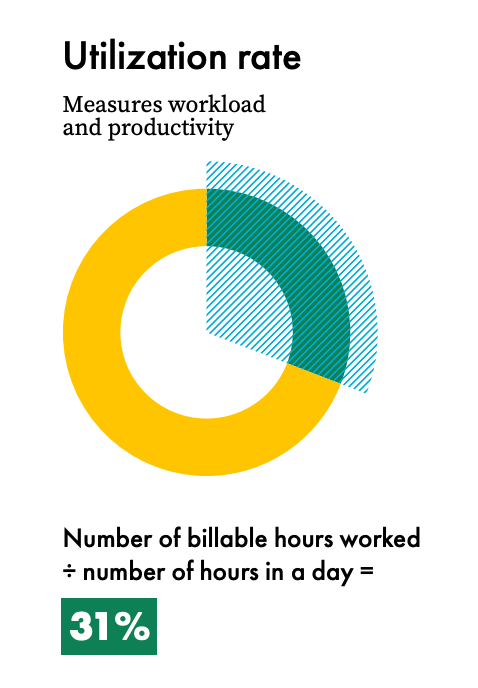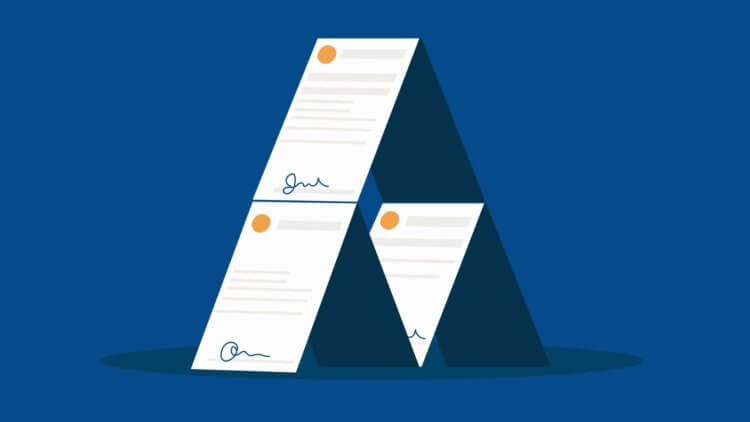Hiring a paralegal is an important part of growing your law firm. Many lawyers consider hard work a badge of honor, but doing all the work yourself isn’t always the smartest play—or the most profitable way to run your practice. Finding a paralegal with the right experience to support your practice frees up your time so you can focus on doing more billable work and running your practice.
While paralegals can’t practice the law, they are still legal professionals. Paralegals have the skills and experience to help with substantive legal work assigned and supervised by an attorney. But how do you hire a paralegal for your law firm?
In this blog post, we’ll cover how finding a paralegal can benefit your law firm’s productivity, profitability, and client service capabilities. We’ll also discuss the different types of paralegals that can support your firm and provide tips on how to hire a paralegal.
What is a paralegal and what do they do?
Paralegals save attorneys time and money. From conducting legal research and communicating with clients to drafting memos and letters, trained paralegals can take numerous non-billable tasks off of your to-do list. Their expertise and support can help improve law firm efficiency. With higher productivity, firms can pass those savings onto clients or re-invest in the organization.
With diverse qualifications and niche areas of proficiencies, paralegals are as diverse as lawyers. Though, as with lawyers, there are general guidelines to what they can and can’t do.
Read what can paralegals do: a guide for lawyers to learn more.
Seven benefits to hiring a paralegal
Not sure about whether you should hire a paralegal? Consider these seven ways a paralegal could benefit your firm.
You may like these posts
1. Save time and do more billable work

Increasing productivity is a great way to improve law firm cash flow. Most lawyers lose a significant portion of their workdays to administrative tasks that don’t bring in revenue. In fact, according to the 2020 Legal Trends Report, the average lawyer spends just 2.5 hours on billable work per day.
By finding a paralegal to take care of legal administrative work, legal research, or other non-billable tasks, you can free up your time to focus on billable work, grow your practice, and boost your firm’s bottom line.
2. Increase efficiency with a more specialized team
Successfully running a law firm means balancing your day-to-day activities with enough billable work, delivering client-centered service, and making sound business decisions. It’s almost impossible for one person to be an expert and have enough time to do all these successfully. But a specialized and efficient team—where different members each focus on doing a few things well instead of doing everything just okay—can lead to economies of scale.
When you focus on billable work and your paralegal focuses on support tasks, you’ll both become better at your respective tasks. This would likely lead to better overall productivity and efficiency.
3. Expand your team in a cost-friendly way

While it may seem counterintuitive to invest in hiring another staff member, adding a paralegal to your team is cheaper than hiring more lawyers. The work that paralegals do can free up your time to serve more clients and bring in more revenue.
4. Pass on cost savings to your clients
When you hire a paralegal, you gain an opportunity to accommodate your clients with lower fees. By delegating administrative and research tasks to a paralegal—who requires a lower fee than a lawyer—you can reduce your cost of service. Charge your clients accordingly, and everyone wins.
5. Increase your team’s flexibility with outsourced paralegals

If you have support needs in your law office but not enough for a full-time paralegal, consider outsourcing this work via freelance or virtual paralegals. These options are more flexible and allow your firm to add extra support during busy times when you need it.
Freelance paralegals and virtual paralegals give you the ability to divide the workload at your law firm without adding someone permanently to your payroll. Virtual paralegals work remotely and can be a big help if your firm is cloud-based or working from home. Services like Hire an Esquire can help you connect with one.
Another time-saving option to consider is paralegal automation. Freeing up top-performing paralegals’ time by automating repetitive tasks will benefit your firm and allow your team to focus on more important tasks.
6. Experienced paralegals are great at legal research and law office administration
For many lawyers, tasks like legal research and administrative work are a time consuming but necessary part of running a legal practice. You can use tech (like Clio Manage legal practice management software) to significantly streamline and automate many manual tasks. But there are still some administrative duties that take time and effort to complete.
For well-trained paralegals, these tasks are their areas of expertise. Chances are, paralegals can tackle these tasks more quickly and effectively than you can and at a lower hourly rate.
7. Most paralegals have specialized training in a legal practice area
Paralegals do so much more than just administrative work—with specialized training and experience in a practice area, paralegals can help with legal work such as:
- Conducting legal research
- Organizing client files
- Drafting pleadings and discovery notices
- Interviewing clients and witnesses
Don’t overlook the expertise of paralegals when it comes to the growth of your firm. Paralegals have a finger on the pulse of what’s happening at your firm, and can lead innovation when it comes to business decisions, technology adoption, and other growth opportunities.
Though hiring any staff member or freelancer is always a big business decision, there are two clear signs that you need a paralegal’s help as soon as possible. First, you should hire a paralegal if you—or other lawyers in your practice—are feeling overwhelmed with work and non-billable tasks. Second, if you’re having trouble keeping costs down at your firm, you could probably use a paralegal. If you’re struggling with time-management issues, your clients aren’t satisfied, or you simply need more support dealing with the work overload, then it’s time to consider hiring a paralegal.
When should I hire a paralegal?
Furthermore, attorneys can set rates, give legal advice, and sign legal documents.
How to hire a paralegal

Want to hire a paralegal but not sure where to start? The following tips can help:
Understand the different types of paralegals
There’s no single job description for a paralegal because the role varies from firm to firm. A big part of what makes paralegals so useful is their versatility and variability. There are many different types of paralegals and paralegal specialties, so you can look for the best fit to support your law firm’s unique needs.
Here are some of the common types of paralegals:
- Practice area: Some paralegals focus on just about every area of law. A paralegal with experience in your practice area will be familiar with the ins and outs of the types of cases your firm works with.
- Paralegal specialists: In some instances, paralegal specialists can provide legal support and assistance to lawyers and judges (as opposed to regular paralegals, who just assist attorneys).
- Generalist paralegals: Smaller firms with just one or two paralegals may benefit from a generalist paralegal that can perform a wide variety of paralegal tasks.
- Freelance paralegals: While freelancers are not full-time and aren’t always on hand, they can help ease your workload as needed.
- Virtual paralegals: Like freelance paralegals, these paralegals can help when needed. However, they work remotely and are even more flexible, given that they work virtually.
Familiarize yourself with what a paralegal can and cannot do
What can a paralegal do:
According to the American Bar Association, paralegals can do any task normally performed by a lawyer, except work that is proscribed by law—as long as the lawyer supervises the work.
This means paralegals—when properly supervised—can perform tasks on behalf of lawyers. A paralegal’s workday could include tasks like completing law office administrative work, conducting legal research, drafting pleadings and discovery notices, assisting in lawyer’s closings and trials, and more.
What a paralegal cannot do:
While paralegals can do a lot to support your legal work, they are not lawyers. Therefore, you need to pay close attention to rules and ethical responsibilities. In general, paralegals must avoid the unauthorized practice of law since they are not lawyers. This means that a paralegal cannot represent any clients, establish an attorney’s relationship with a client, set fees, or give legal advice.
The ABA also offers guidelines for the utilization of paralegal services, which outline when and how attorneys should introduce paralegals to clients, courts, and other lawyers.
It’s important to know that the exact parameters of what a paralegal can (and can’t) do vary by state. Be sure to check your jurisdiction’s rules to ensure you’re not inadvertently breaking them.
Determine what type of paralegal you need
“Okay,” you’re thinking, “I need a paralegal—but what kind of paralegal do I need?”
Look at the common types of paralegals, and think about what type of help you could benefit from in your practice. Do you need the paralegal to specialize in certain areas of law? Do you want someone who is freshly trained (and might have more recent technology training)? Or do you need someone who already has a lot of experience and might know more of the ins and outs of your practice area?
Create a job posting and share it
If you’re ready to recruit a paralegal, consider what tasks a paralegal would focus on at your particular firm. Then, draft a job description and start sharing it, and publishing the posting on job boards.
Here are a few tips for creating an effective paralegal job posting:
- Be clear. As we’ve discussed, the role of a paralegal can cover a wide variety of tasks. Don’t be vague—explain what type of paralegal you’re looking to hire and what their main responsibilities will be. Do you want a paralegal who thrives doing a lot of legal research? Or do you want a paralegal who is a pro at speaking with clients?
- Explain how to apply. If you want to get quality applicants, be sure to include clear instructions on how to apply. You don’t want to lose out on the perfect candidate because of a confusing posting on your part.
- Share and post it strategically. Post your job where paralegals will see it. Try sharing it on legal and paralegal job boards and paralegal associations (like NALA (National Association of Legal Assistants) and National Federation of Paralegal Associations (NFPA).
- Tap into your professional networks. Share your posting with your network—positive references are a powerful way to find quality new staff members.
Are you a paralegal looking to craft the perfect law firm application? Read our post on paralegal cover letters!
Vet through your potential candidates

Once you’ve collected a list of applicants, vet any potential candidates to put the best at the top of your list. Look for:
- Experience. Check a potential candidate’s resume for their experience level, previous experience, and where they’ve worked in the past. If you’re a new lawyer, a paralegal with extensive hands-on experience in your practice area could be a big help.
- Are they certified? Not all states require paralegals to be certified, so check your state’s rules. But if your state requires it, you need to as well. Whether or not it’s required, it’s good to look into a candidate’s level of training.
- What type of certification do they have? There are many paralegal certifications out there, and not all are made equal. If a candidate’s resume mentions certification, check from where—NALA and NFPA are two of the most reputable certification programs.
There’s also a difference between a certificate of completion and a paralegal certification:
- A certificate of completion means that someone has completed a paralegal educational program.
- Paralegal certification means that someone has completed a certification exam or a certifying organization’s requirements to become a certified paralegal.
Keep in mind that while a bar-sanctioned program represents a higher level of achievement, these candidates will also require a higher salary.
Conduct an initial phone interview with your applicants
Once you have a list of vetted candidates, conduct phone interviews to narrow down your candidate list even further.
Phone interviews are a good way to get a better picture of a candidate’s spoken demeanor while learning more about their experience and achievements. After all, they may be speaking on the phone with your clients. The phone interview is also a good time to ask about what they’re passionate about professionally, to get a better sense of their goals.
Conduct a face-to-face interview with your potential candidates
Whether you’re able to meet in person or virtually via video conference with a tool like Zoom, take the time to interview your shortlist of candidates face-to-face.
To help your paralegal interviews run smoothly:
- Be prepared. The interview is your last chance to get to know if someone is the right fit, so come prepared with a set of questions to help determine their experience level, work ethic and style, and goals to see if they align with your firm.
- Schedule interviews. Especially if you’re interviewing multiple candidates, it’s important to stay organized. Use appointment booking tools like Calendly to help you schedule interviews easily and keep track of them.
- Ask for samples. If you are looking for a paralegal to assist with a lot of correspondence or writing tasks, you can request writing samples to help assess their skill level. And if a candidate is certified, you may also want to use the opportunity to ask to see any certification.
Make client-centeredness one of your top requirements

Part of running a client-centered law firm is considering your clients’ needs and experience at the center of your thinking—even when finding a paralegal.
Your paralegal is an important part of your law firm and business, and will likely be the first point of contact with customers. When interviewing a potential candidate, keep in mind that your paralegal will likely have a lot of face time with your clients. Remember to consider a candidate’s personality and how they will fit into your team, represent your law firm, and interact with your clients. (You can take a course to get your law firm Client-Centered Certified here).
Conclusion
If you’re a lawyer who spends a lot of your day juggling billable legal work with the non-billable administrative work that comes with running your practice, your time is probably diluted and stretched thin. This could translate into a loss of potential revenue and less time to focus on your clients. You can hire a paralegal to support your law firm with legal tasks while helping you cut costs and freeing up time to focus on billable work.
Finding a paralegal takes a bit of effort—from figuring out what kind of paralegal your firm needs to vetting and hiring the best fit—but the long-term benefits outweigh the work. Whether you hire a paralegal full-time or opt to add a more flexible freelance paralegal to your team, adding an experienced legal professional (who isn’t a lawyer) to your firm can go a long way to help your firm grow.
Note: The information in this article applies only to US practices. This post is provided for informational purposes only. It does not constitute legal, business, or accounting advice.
We published this blog post in February 2021. Last updated: .
Categorized in: Business








